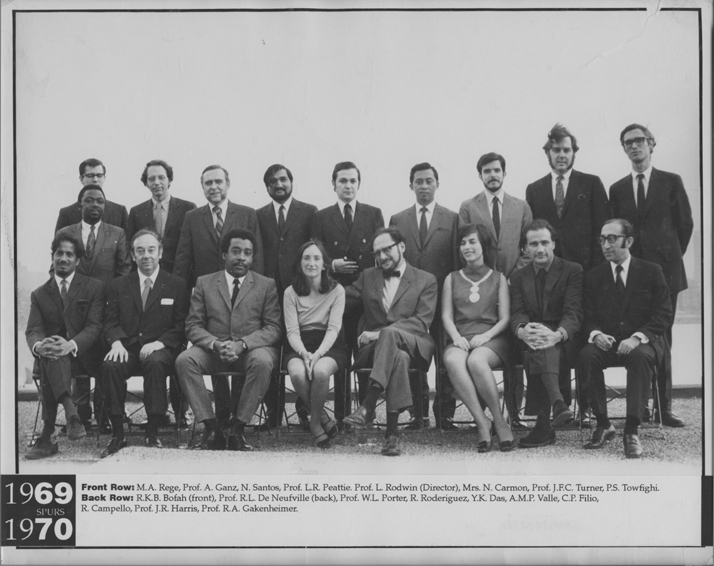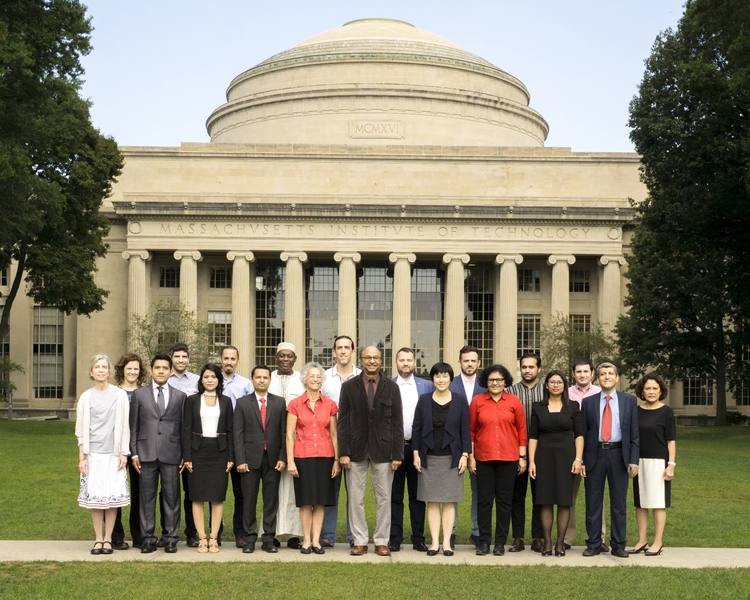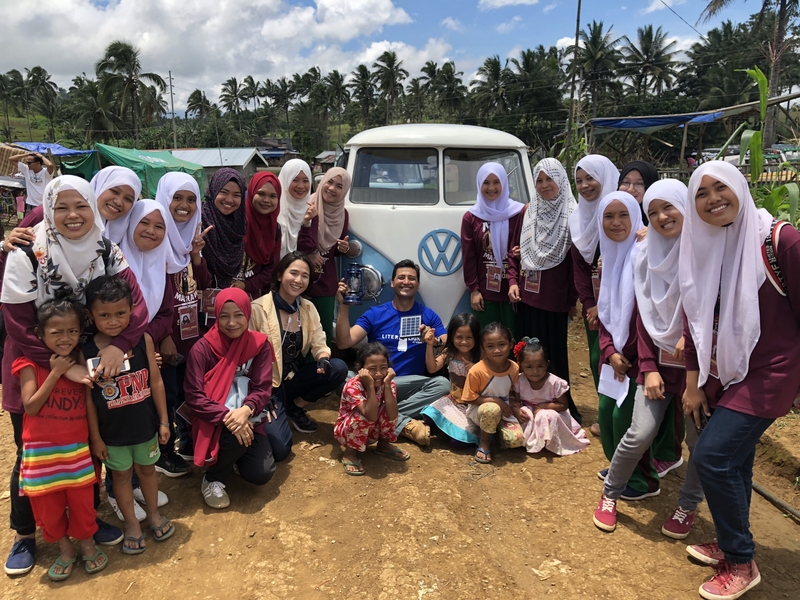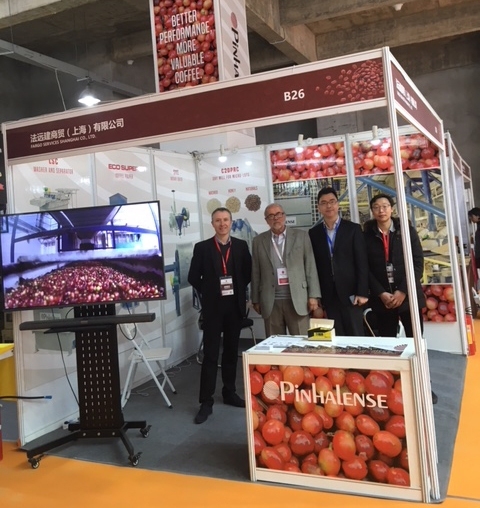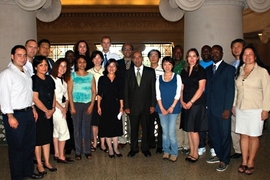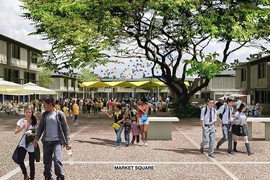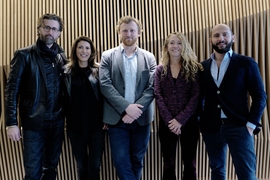Carlos Enrique Jorge Brando had been working as a civil engineer in São Paolo, Brazil, for three years when he applied for a Humphrey Fellowship at the Special Program for Urban and Regional Studies (SPURS) in 1980. SPURS, which was created in 1967 within MIT’s Department of Urban Studies and Planning (DUSP), is a one-year, non-degree program designed for outstanding midcareer professionals from newly industrializing countries.
“I was able to select courses at different MIT schools,” says Brando, who today runs a coffee business that exports from Brazil to 92 countries on five continents. “I attended weekly seminars led by outstanding speakers, and the weekly meetings of the SPURS fellows. SPURS allowed me to de-engineer, to become a planner, a strategist, and later a businessman. Oddly enough, I went to one of the world’s best engineering schools to divest myself from engineering.”
Now celebrating its 50th anniversary, SPURS has changed the lives of hundreds of fellows from over 120 countries. Drawn from fields as diverse as architecture, economics, and urban planning, the fellows form cohorts of 15 to 18 students and follow a flexible program of study that exposes them to faculty, practitioners, and local, national, and international organizations and events.
“Our fellows are usually in the middle of their careers, at a fairly high level, and in environments where the constant fire-fighting makes it very hard for them to reflect,” says Bish Sanyal, the Ford International Professor of Urban Development and Planning and director of SPURS since 2004. “We provide them with a setting where they can reflect on their career, study new ideas and technologies, and start thinking about what they want to do next.”
A former head of DUSP, Sanyal has witnessed many changes in the urban and regional planning field —and at SPURS — since he arrived at MIT in 1984. “In developing countries, most planning decisions used to be made from the top down,” he explains. “A central government minister would say: ‘We need a road here,’ and the road would be built. Today there are many more stakeholders and community groups involved in such decisions. Planners need different skills than they once did. When SPURS was created, we didn’t offer a single course in negotiation or dispute resolution. Now most of our fellows sign up for at least one.”
About two thirds of each year’s SPURS cohort receives funding from the Hubert H. Humphrey Fellowship Program, administered by the Institute of International Education with funds from the U.S. Department of State. National governments sponsor some of the remaining fellows. MIT is the only planning school that receives Humphrey Fellowship funding. “We were successful in competing for State Department funding mostly due to MIT’s standing in the world,” explains Sanyal. “Our reputation is very strong.”
MIT’s reputation also helps draw prospective fellows to SPURS.
“I chose the SPURS program for the chance to attend a wide range of lectures, seminars, and workshops on the most important development topics,” says Abdulaziz Alkhedheiri, who was working at the Riyadh Development Authority when he applied to SPURS, and who later served as the deputy governor of the City of Mecca and later as Saudi Arabia’s minister of Culture and Information. “And also for the access it offers to top professionals and experts from around the world, all within the MIT network. I still look at MIT as a home I can return to whenever I need a refresher or an injection of knowledge.”
A similar sentiment is expressed by Illac Diaz, a 2006 SPURS Fellow who is currently the leader of an internationally recognized nongovernmental organization, Liter of Light, that works to bring solar lighting to people with no access to electricity. While at SPURS, Diaz worked with MIT graduate students in developing a new lighting system for low-income households. “MIT offered a unique setting for cultivating my entrepreneurial as well as technical skills, which fundamentally changed my professional career,” Diaz says.
To commemorate SPURS’ 50th anniversary, Sanyal and his colleagues will produce a book that explores whether the North American planning experience can be relevant to planners and policy makers in the developing world. Sanyal believes that the fellows’ social experience living in the United States is often as instructive as the professional knowledge they acquire in the classroom or during seminars and meetings.
“One of the first things the fellows notice is the level of free speech within American academia,” he says. “Free speech and democracy are essential to successful planning today. It’s important that our fellows understand that.”
Sanyal believes that even North America’s perceived failures and struggles can be useful to SPURS Fellows. “Many of them are surprised by the poverty they find here,” he says. “They’d imagined the U.S. to be a very wealthy country. And few know the history of race relations here, about the Civil War and Jim Crow laws. It’s extremely valuable for them to see that race relations can improve. That’s a lesson they can take back to their own countries.”
Knowledge travels in both directions at SPURS; faculty learn as much from visiting fellows as the visitors do from faculty.
“I think the global South may have things to teach the global North in terms of planning,” says Lawrence Vale, the Ford Professor of Urban Design and Planning at MIT, who is writing a chapter on housing policy for the forthcoming SPURS publication.
“I’ve observed several instances of midstream learning in the South, multiphase projects where there is pushback from local communities, and planners and builders pause to analyze what might have gone wrong in the first phases,” Vale says. “You see very little of that happening in the U.S., where they’re usually thinking about how to secure the next round of funding.”
Laura Sara Wainer, a PhD student in DUSP and 2016 SPURS fellow from Argentina, believes similar conclusions and practices can be deduced from analyzing housing policies across developing countries.
“I find it shocking that you can look at a photograph of a public housing project and you can’t tell where that photograph was taken,” says Wainer, who is collaborating with Vale on the housing policy chapter. “My work here has led me to investigate why so many countries are producing the same kind of housing, and to examine the relationship between social policy and housing.”
Many SPURS Fellows return to their original jobs refreshed, but just as many choose a new path.
“One way or another, SPURS introduced change into your lives,” program alumnus Brando told SPURS Fellows at their 2016 commencement. “No matter what your field of work is, you will be an agent of change because of SPURS.”
